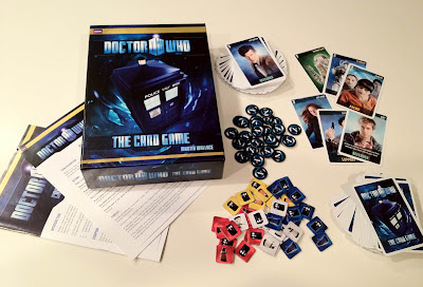 I have become a big fan of the science fiction TV series Doctor Who over the last few years, and while there have been plenty of Doctor Who board games published over the years, lets face it most of them have been pretty terrible. When I sat down at the table at GenCon to demo this game I had high hopes of Doctor Who: The Card Game. The game was designed by Martin Wallace. As the name suggests, Doctor Who: The Card Game is based around a deck of cards. There are also some players tokens used to represent the TARDIS, Daleks, and Time Points. The game takes three or four players, and suggests one hour as the approximate play time. On his or her turn, each player plays cards until he has three left, then passes those to his right-hand neighbor. You'll usually have five cards in your hand: two you've picked up from the draw deck, and three you've been passed by your left hand opponent. There are four main types of cards: locations, enemies, defenders, and support. Locations are played to your tableau and are worth VPs– you get the VPs at the end of the game unless the location is under attack at game end, in which case the attacking player gets the points. Enemy cards are the ones used to launch attacks on other players' locations, and include monsters and aliens from the TV series such as Daleks, Cybermen, and the Master. Defender cards are used to defend your own locations, and represent the Doctor and some of his companions. When enemy and defender cards are both played, their strengths are added up to determine the winner, with defender winning ties. Finally, support cards bring in some of the equipment and allies from the TV series, and can be played for a variety of effects to shake things up a bit. In most turns, you will have just two cards to play, but it's possible to use a reserve (usually limited to two cards) and to buy extra cards. I won't go into all the rules here as they can be downloaded, but the above basic outline should give you the general idea. So what do I think of it? I like rules to be comprehensive and clear. These rules are well-written for the most part, but there are some pretty significant holes. The resolution of conflicts is incompletely described in the rule book and that's pretty important. Some things that seem to happen fairly frequently are not addressed in the rules (e.g. what do you do if you need more TARDIS or Dalek counters than the five provided? can immediate game end be triggered during the usual "end game" phase?) – I hope an FAQ will sort some of this out. But once you've figured out what the rules are intended to be, or house ruled the omissions, the game seems pretty solid. 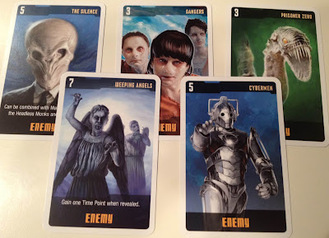 For me, the theme is pretty important in this game. After all, I bought it partly because it's Doctor Who rather than because the mechanisms sounded interesting. The theme is well established by the artwork on the cards. In the TV series, the Doctor and his companions do defend various locations in time and space against a variety of monsters and alien invaders, so the game premise works. The enemy invaders tend to stick to their own kind, and the game encourages you to attack with, e.g., a group of Daleks– it isn't usually possible to mix and match different aliens in one attack. So it's a pretty faithful theme for a simple card game. The theme breaks down a bit if you try to ask the question, "Who am I as a player?" As a player you are rooting for the Doctor in the locations you've played, and cheering the enemies in the locations your opponents have played. Probably it would take a Time Lord brain to make sense of that thematically. The components are good, with nicely rendered artwork, and it's pretty clear to see what's going on. The blue player's tokens easily get hidden on the blue backs of the cards-- but that's a fairly minor niggle. The game plays in an hour, and once players are familiar with the cards, starts to get quite a bit quicker. There are always decisions to make, but I'd suggest it isn't a game to agonize over every card play: it's best played at a reasonable clip. There's lots of bluff-calling in playing the hidden attack and defense cards. There's always a trade off between doing what I want to do, and making sure I don't pass the best cards on to my right-hand neighbor– especially if those cards will let my neighbor attack me! Do I make a move now while my opponent’s defenses seem weak, or do I delay and use my reserve to try to build up a more powerful attack? When I manage to accumulate enough Time Points to buy a new card, I need to choose the right time to do that, as it effectively buys an extra action, or can save me from having to pass that killer card to my neighbor. Locations seem good– they give me victory points if defended properly, after all. But if I've been keeping an eye on who has what cards, I might think I have a better chance by passing it to my opponent and then trying to conquer it. There are lots of trade-offs to think about, but it never gets to complex and brain-melt down. I haven't yet played enough to say whether skill or luck will dominate in this game in the long run, but it doesn't feel impossibly random in my first few plays. 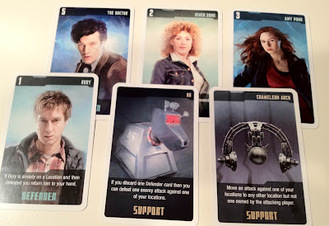
0 Comments
Leave a Reply. |
Archives
August 2021
Categories
All
|
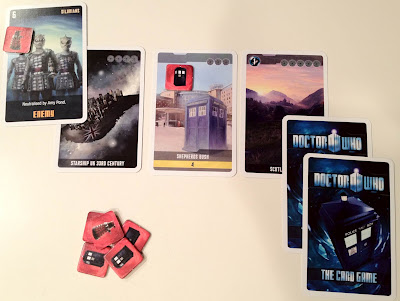
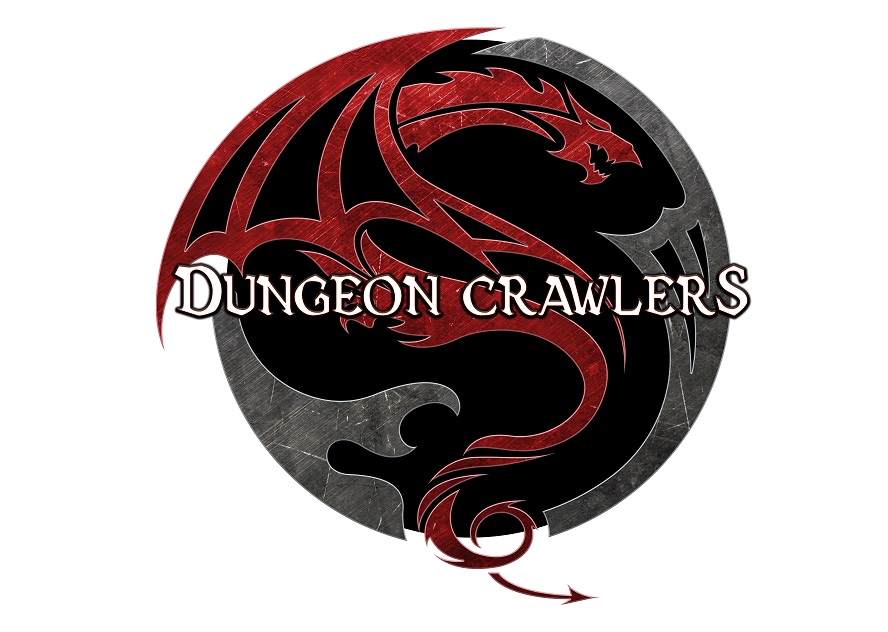
 RSS Feed
RSS Feed








